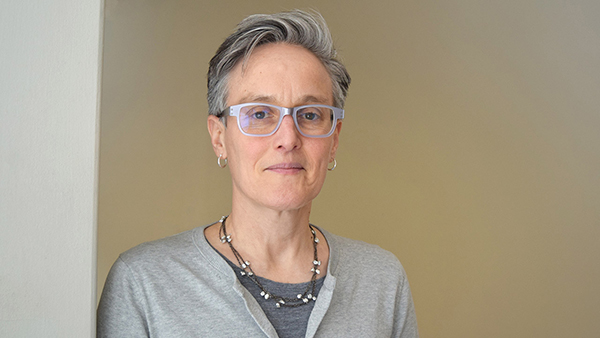In Canada, Indigenous people continue to face persistent health inequities, that are rooted in colonialism and racism. These issues extend to cancer and cancer screening in Ontario, where Indigenous persons report a lack of cultural safety and have have worse outcomes from cancer.

To improve cancer outcomes and address the disparities faced by Indigenous peoples across Ontario, researchers from the University of Toronto, Sunnybrook Hospital, Cancer Care Ontario (CCO), and Queens University have received a 5-year $1.5 million grant from the Canadian Institutes of Health Research (CIHR), which aims to improve Indigenous cultural safety in cancer screening.
“Research shows, that cancer-related survival is worse among Indigenous people compared to the general population in Ontario,” said Dr. Jill Tinmouth, lead principal investigator on the project and an associate professor at the Institute of Health Policy, Management and Evaluation (IHPME) in the Dalla Lana School of Public Health. “We know that for some cancers, screening is an effective way to prevent the cancer and improve cancer-related survival, yet issues related to poor cultural safety may be contributing to lower screening rates among Indigenous peoples.”
Previous research conducted by Tinmouth, who is also a physician scientist at Sunnybrook Hospital, along with her co-principal investigator on the current grant, Alethea Kewayosh, Director of the Indigenous Cancer Control Unit at Cancer Care Ontario, found that Indigenous participants reported a lack of trust, poor communication, and power imbalances as key barriers in accessing cancer screening.
“The two largest barriers to Indigenous health, racism and access, are not biological or technical processes, they have to do with systems and systemic delivery,” said Suzanne Stewart, Director of the Waakebiness-Bryce Institute for Indigenous Health and a co-researcher on this project.
The project will look specifically at ways to improve access in Cancer Care Ontario’s organized cancer screening programs in breast, cervical, and colorectal cancers. The researchers and their Indigenous partners will focus on three aims: 1) improving cultural safety in the cancer system and working with Indigenous communities 2) establishing culturally safe communication strategies and 3) exploring shared decision-making processes for cancer screening.
Stewart along with IHPME professor Whitney Berta, will be leading the aim focused on improving cultural safety in Ontario’s cancer screening programs, which will include the development of an evidence-informed assessment tool applied to the CCO’s current strategies, alongside interviews with clients/patients, providers/practitioners, and health systems representatives.
“Cultural safety is a care concept that emphasizes respecting cultural differences, demands empathy and self-reflection, and is attentive to empowering the care recipient,” said Berta. “Research suggests that failure to attend to cultural safety can lead to underuse, delayed use or poor access to care services.”
Implementing cultural safety training for service providers particularly in cancer screening, can help to ensure that Indigenous patients do not experience adverse events because of culturally unsafe practices.
“Many Indigenous people feel judged or biased against, and often experience fear that their health condition will be attributed to social factors outside of their control,” said Stewart. “This fear leads them to avoid screening or opt out of treatment and widens the gap in their care that much further.”
Currently CCO sends out millions of letters each year as the primary way of reaching individuals who are due for screening. While effective in the general population, the team’s prior research suggests that this approach to communication may not be working for many Indigenous persons in Ontario. In rural areas for example, letters regarding screenings may never arrive, while some Indigenous people may indicate a preference for receiving health information orally or from a trusted Indigenous community member.
The partnerships that Tinmouth and Kewayosh have developed with Indigenous communities over the past five years are fundamental to the current project and will help to address issues identified by these partners including the need for new communication strategies.
“Addressing how we tackle correspondence and strategizing around the ways in which we can consider our audience, the message and the ways in which it is delivered are all questions we are trying to sort out,” said Tinmouth. “But empowering the recipient of healthcare and addressing issues that we know are important to Indigenous participants, such as the lack of culturally relevant screening education resources and the complexities of getting screened in rural Indigenous communities, are additional ways that we can transform the design of the system so that it will benefit everyone.”
Related News

Sign up for IHPME Connect.
Keep up to date with IHPME’s News & Research, Events & Program, Recognition, e-newsletter.
Subscribe to Connect Newsletter
Get in Contact
Communications
Marielle Boutin
Email Address: ihpme.communications@utoronto.ca





